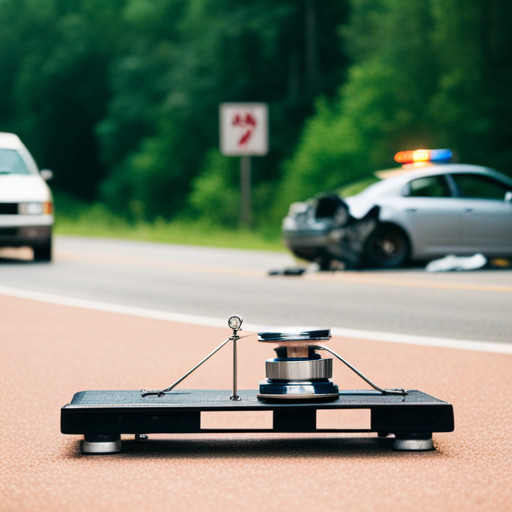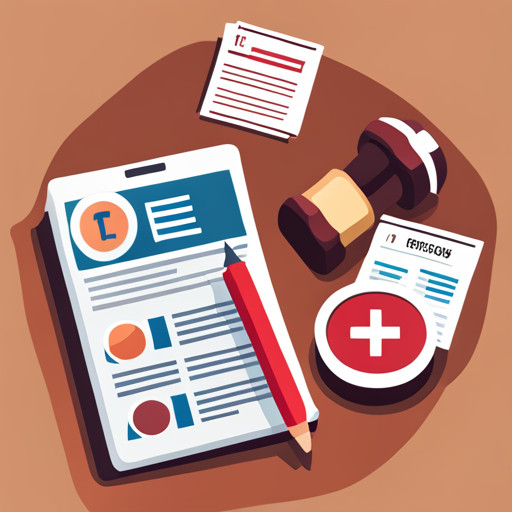Arkansas Car Accident Guide Get Fair Compensation for Injuries
Understanding the aftermath of a car accident is a critical aspect of the post-accident process. Navigating Arkansas's liability rules is another important factor to consider. Assessing appropriate compensation is also crucial.

This article provides a comprehensive guide to the legal landscape in Arkansas concerning car accidents. It aims to assist victims in securing fair compensation for their injuries.
One important point emphasized in the article is the importance of prompt legal action. Arkansas has a three-year statute of limitations for personal injury claims. This means that victims must take legal action within three years of the accident to be eligible for compensation.
By understanding the aftermath of a car accident, navigating liability rules, and assessing appropriate compensation, victims can better navigate the post-accident process and secure the compensation they deserve.
Key Takeaways
- Stay at the scene of the accident, exchange information, and call 911 to help the injured.
- Seek prompt medical treatment and gather evidence from the scene of the accident.
- Notify both insurance companies and understand that Arkansas is an at-fault liability state.
- If you or a loved one were injured in an Arkansas car accident, you could be eligible for compensation, but there is a three-year statute of limitations for personal injury claims.
Understanding the Aftermath of a Car Accident

Understanding the aftermath of a car accident involves a series of crucial steps. These steps include remaining at the scene, exchanging information, contacting emergency services, seeking immediate medical treatment, gathering evidence, and promptly notifying the relevant insurance companies.
The importance of seeking medical attention after a car accident cannot be overstated. It not only ensures the victim's wellbeing but also plays a decisive role in the establishment of a legal claim. Immediate medical documentation serves as crucial evidence of injury directly caused by the accident.
Concurrently, understanding the role of insurance companies in car accident compensation is pivotal. Insurance firms bear the responsibility of compensating victims for the damages incurred. Therefore, their swift and accurate notification post-accident is paramount.
Navigating Arkansas’s At-Fault Liability Rules

Navigating the at-fault liability rules in the context of vehicular incidents necessitates a thorough understanding of Arkansas's specific regulations and procedures. Crucial to this process is the comprehension of Arkansas comparative fault laws. These laws, following a modified comparative fault rule, allow individuals to pursue a claim against the other driver if they are more at fault. Compensation, however, is reduced by the individual's percentage of blame if they share less than 50% of the fault.
The role of insurance companies in car accident compensation cannot be overstated. They are instrumental in handling vehicle repair claims and pursuing reimbursement from the at-fault driver's insurance company. Additionally, insurance companies play a pivotal role in the payout of auto accident claims, which in Arkansas amount to over $1.2 billion annually.
Assessing Accident Compensation in Arkansas

Assessment of accident-related compensation involves a comprehensive evaluation of both economic and non-economic damages, including medical expenses, lost earnings, and intangible losses such as pain and suffering. The car accident settlement process is complex, often requiring legal expertise to navigate effectively. Emphasis is placed on proving fault in car accidents, as this significantly influences the compensation amount.
To illustrate the potential damages for consideration in a car accident settlement, the following table presents some examples:
| Economic Damages | Non-Economic Damages | Fault Determination |
|---|---|---|
| Medical expenses | Pain and Suffering | Police reports |
| Lost earnings | Emotional distress | Eyewitness testimony |
| Property damage | Loss of consortium | Expert witnesses |
The goal is to ensure fair and adequate compensation that encapsulates all losses experienced due to the accident.
Comprehending Arkansas’s Shared Fault Rules

Comprehending the shared fault rules applicable in vehicular collision cases requires an examination of the modified comparative fault principle, which allows victims to pursue claims against the other party if their degree of fault is less than 50%. This principle is part of Arkansas comparative negligence standards and plays a crucial role in determining the compensation for damages.
The impact of shared fault on compensation can significantly reduce the claim amount, proportional to the victim's degree of fault.
In scenarios where fault is shared equally at 50%, the victim may not recover any compensation.
The court or insurance company will establish the percentage of fault for each party involved in the accident.
Understanding these rules can aid in realistic expectation setting and inform legal strategies for pursuing rightful compensation.
Decoding Rear-End Collision Laws in Arkansas

Decoding the intricacies of rear-end collision laws in the said region involves a thorough understanding of AR § 27-51-305, which typically holds the following driver responsible if they were unable to safely halt their vehicle.
Factors such as traffic speed and road conditions are crucial in determining fault. The steps to prove fault in a rear-end collision often include evidence of negligence, such as tailgating or distracted driving.
Circumstantial elements may, however, reduce the rear driver's share of fault. Compensation in such car accident claims is affected by multiple factors, including the severity of injuries and degree of fault.
Therefore, understanding the law's nuances is vital in ensuring fair compensation for damages incurred.
Dissecting Side-Impact Collision Laws in Arkansas

Investigating side-impact collision laws necessitates an acute understanding of AR §27-51-601 and AR § 27-51-401, which generally attribute fault to the motorist who failed to yield the right of way. These laws, coupled with side-impact collision statistics, offer a comprehensive framework for determining liability.
Examination of the circumstances surrounding the collision is paramount. This includes whether the at-fault driver ran a red light, failed to stop at a stop sign, or turned left into oncoming traffic.
Evaluating potential contributory negligence is also crucial.
Furthermore, establishing a direct causal link between the negligent behavior and the collision is required.
Understanding how fault is determined in side impact collisions can significantly influence the outcome of personal injury claims and ensure victims receive fair compensation.
Unraveling Head-On Collision Laws in Arkansas

Moving on from side-impact collisions, the discourse now shifts to head-on collisions in Arkansas. Head-on collisions, often resulting from a driver crossing the center line into oncoming traffic, are particularly dangerous. Such negligence is covered under AR § 27-51-301 and AR § 27-51-306. Understanding head-on collision insurance is crucial, as this coverage can play a significant role in the financial recovery process. Consideration of head-on collision statistics is also vital for grasping the gravity of these accidents. An examination of the laws, insurance coverage, and statistics surrounding head-on collisions can provide a more comprehensive understanding of the potential repercussions and compensation mechanisms available in Arkansas.
| Arkansas Code | Description | Impact |
| AR § 27-51-301 | Governs driving on the right side of the road | Explains the responsibility to stay in one's lane |
| AR § 27-51-306 | Regulates crossing the center line | Dictates when it is permissible to cross into oncoming traffic |
| Head-on Collision Insurance | Insurance coverage for head-on collisions | Provides financial recovery avenues |
| Head-On Collision Statistics | Data on the frequency and outcomes of these accidents | Highlights the risks and repercussions of head-on collisions |
Evaluating Car Accident Compensation in Arkansas

Exploring the intricacies of financial recovery in vehicular mishaps, the focus is now on the compensation mechanisms, particularly the insurance payouts and legal settlements that are prevalent in such cases.
The Arkansas car accident settlement process involves multiple steps, from reporting the accident to negotiating with insurance providers.
Determining fault in Arkansas car accidents is crucial as the at-fault party's insurance covers the damage.
The settlement amount is influenced by the severity of injuries, loss of income, and extent of property damage.
Legal assistance can expedite the settlement process and ensure fair compensation.
Understanding these aspects can provide clarity to victims and aid them in navigating the complex terrain of settlements following vehicular accidents in Arkansas.
Factors That Influence Car Accident Compensation

The factors influencing the monetary recovery following vehicular mishaps significantly vary, with aspects such as the extent of physical harm, shared responsibility for the incident, and available insurance coverage playing critical roles. This complex interplay of factors influencing compensation amounts necessitates a detailed understanding of each individual case.
The severity and longevity of physical injuries, for instance, directly impact the compensation amount. Shared fault rules in Arkansas, where one's compensation is reduced according to the percentage of blame, further complicate this calculation.
Notably, the role of insurance coverage in compensation is vital. The at-fault party's insurance policy limits and the victim's own insurance coverage can significantly influence the final compensation amount.
Steps to Take Following a Car Accident in Arkansas

Initial actions following a vehicular mishap can significantly impact the outcome of any legal proceedings and potential damages, making it critical to understand the correct steps to take in such situations. Understanding insurance coverage and seeking medical treatment are paramount.
- Immediately after the accident, it is essential to contact the relevant insurance company and provide an accurate account of the incident.
- Understanding the terms of the insurance policy can aid in navigating the claims process.
- Seeking immediate medical treatment, even in the absence of apparent injuries, is crucial as some symptoms may manifest later. Medical records serve as vital evidence in substantiating claims.
These steps help ensure fair compensation and safeguard legal rights, underscoring the importance of prompt, informed action post-accident.
When to Seek Legal Assistance Post-Accident

Seeking legal assistance post-accident can be a critical step in ensuring the protection of rights and securing just recompense for damages incurred. Retaining legal representation can provide a strategic advantage in navigating the complexities of insurance policies and the legal landscape surrounding vehicular accidents.
Proficient understanding of insurance policies and laws is vital in preparing a solid case and successfully claiming compensation. Legal representation aids in negotiating with insurance companies, offering the necessary protection against the tactics often used to minimize or deny claims.
Thus, seeking legal representation post-accident should not be seen as optional, but rather an essential measure in safeguarding the victim's interests and ensuring the rightful recompense is secured.
Importance of Timely Filing Personal Injury Claims in Arkansas

Understanding the imperative nature of timely filing for personal injury claims is crucial, given that delay may result in forfeiture of the right to pursue compensation for damages incurred. Timely filing is a process that not only ensures the legal validity of a claim but also allows for the thorough gathering and preservation of relevant evidence, which is instrumental in strengthening the case. In Arkansas, the statute of limitations dictates that personal injury claims must be filed within three years from the date of the accident.
Adherence to the timely filing process safeguards a claimant's rights.
The importance of evidence in substantiating a claim cannot be underestimated.
Delays could result in critical pieces of evidence being lost or becoming less reliable over time.
Frequently Asked Questions
What Should I Do if the At-Fault Driver’s Insurance Company Contacts Me After an Accident in Arkansas?
Upon contact from the at-fault driver's insurance company following an accident in Arkansas, one should refrain from providing recorded statements without legal representation. The presence of legal expertise can ensure accurate relay of facts and prevent manipulation of statements to the disadvantage of the victim.
Thus, securing legal representation is pivotal in navigating interactions with insurance companies, safeguarding the victim's rights, and facilitating fair compensation for injuries.
Can I File a Lawsuit if I’m Not Satisfied With the Compensation Offered by the Insurance Company in Arkansas?
In Arkansas, individuals dissatisfied with compensation offered by an insurance company have the right to file a lawsuit. However, navigating complex legal processes requires understanding of unfair settlement tactics employed by insurers.
Legal assistance benefits claimants by providing necessary expertise and advocacy. Ultimately, legal representation ensures fair compensation, counteracting potential inequities in settlements proposed by insurance companies.
What Are Some Common Long-Term Effects of Car Accident Injuries That Should Be Considered While Calculating Compensation?
Long-term effects of car accident injuries, such as chronic pain management and rehabilitation costs, significantly impact compensation calculations.
Chronic pain can necessitate ongoing medical treatment, impacting quality of life and financial stability.
Rehabilitation costs, including physical therapy and occupational therapy, can be substantial.
Additionally, potential future medical complications and the need for assistive devices or modifications to the home or vehicle should be considered.
These long-term effects underscore the necessity of comprehensive evaluation when calculating compensation.
Can I Get Compensated for Emotional Distress Caused by a Car Accident in Arkansas?
In Arkansas, emotional distress, a form of non-economic damage, is recognized in car accident claims. This includes Post-Traumatic Stress Disorder (PTSD) consequences resulting from the accident. Compensation may cover therapy costs associated with managing emotional distress.
However, proving emotional distress requires substantial evidence. Factors such as severity, duration, and the link between distress and accident are considered when awarding compensation for emotional distress.
How Does the Process of Proving Fault in a Car Accident Work in Arkansas?
In Arkansas, fault determination in car accidents unfolds much like a complex puzzle, with each piece contributing to the overall picture. It involves a thorough review of evidence, such as police reports, witness statements, and damage patterns.
The comparative negligence rule applies, allowing for compensation even when the claimant is partially at fault. However, if the claimant's fault exceeds 50%, compensation is barred.
Legal expertise is crucial in navigating these intricate processes.

This post has been generated by AI and was not reviewed by editors. This is Not legal advice. Please consult with an attorney.




